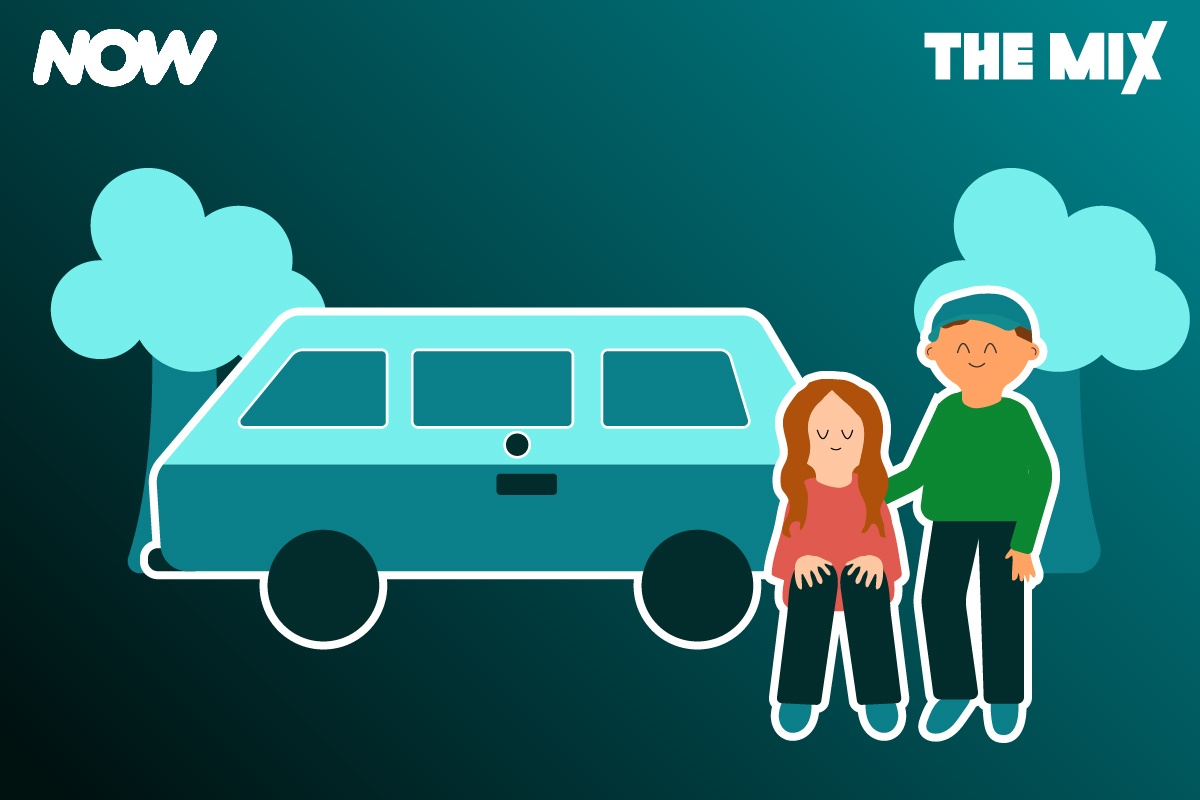Movie Review: ‘The Short History of The Long Road’


Hi! My name is Molly and I am a student at the Northern Ballet School. When I’m not dancing, I enjoy volunteering for The Mix and am currently a GenNOW ambassador. Here’s my review of the movie, ‘The Short History of the Long Road’, which is streaming on NOW.
Plot summary: Teenage Nola and her father, Clint, live as nomads, spending their days travelling around the American Southwest in their VW camper van. Nola’s father is her anchor and is always there for her. Until suddenly, he isn’t. On a day like any other, Clint passes away mid-conversation with Nola. This moment is the first of many throughout the film which reminds us of the transience of life.
The kindness of strangers
‘The Short History of The Long Road’ doesn’t shy away from displaying the risks of living a nomadic life. Being a teenage girl, Nola is vulnerable to the dangers of drugs, drink, and exploitation, which she avoids as best she can when squatting in an abandoned property. But not everybody is a bad person, and Nola learns that if she’s to survive, she may have to rely on the goodwill of strangers.
For me personally, I regard the kindness of strangers as being the thing that keeps my faith in humanity alive. When it feels like there is so much brutality and sadness in the world, it’s easy to forget to love, to be kind, and to be generous. At times like this it helps me to remember that there are good people on this Earth. Many of them I may never meet – or even hear about – but they still exist.
Simply helping and being kind to others is a reward in itself; and is cyclical in nature – kindness begets kindness. You don’t have to perform a major heroic act to be kind towards a stranger – you never know how a simple “thank you” or smile could affect someone on any given day.
Exploring the theme of family and community
‘The Short History of The Long Road’ beautifully explores the concept of family. Family means different things to different people. We are all born into a family, but this doesn’t always keep the same form throughout our lives.
So, when Nola eventually finds her mother, Cheryl, she finally feels hopeful for a new life. However, when they finally meet, her mother is nothing like she imagined.
This scene contrasted greatly with my previous expectations of how the plot would pan out, leaving me thinking about how we perceive the idea of ‘family’, and how life is not the typical fairy tale that society often makes it out to be. The truth is, that sometimes relatives do not get on with each other, but we can create our own sense of family if we want to, since there is no set definition for the term.
Your parents may have passed away. You may have grown apart from your siblings. You may have lost touch with your cousins. You may have purposely severed certain connections because they became too toxic for you, or because you realised that blood doesn’t determine whether or not someone deserves a place in your life.
There is no law that dictates how much or how little contact with your biological family is acceptable. You don’t have to continue a relationship with them if that’s not what you want, because your family isn’t just something you are born into, it can also be something you create.
The beauty of belonging
You can create your own family by collecting people who understand the way that your mind works, who have similar morals and beliefs, who you can sit with in silence and feel completely comfortable but can also laugh about your favourite memories. They are the people who want what is best for you, even if that means you might move far away from them. They are the people who encourage you to pursue your dreams, even if that means you’ll have less time for them, and the people who genuinely believe that you have what it takes to create a successful life for yourself. These people might be old classmates, neighbours, churchgoers, lovers, in-laws, friends, work colleagues, or members of the community.
One of life’s greatest beauties is the sense of belonging, fitting in, and feeling like we are part of a family. Inside each of us, we have an innate desire to feel accepted, loved and appreciated. We must remember that this is possible for all of us.
Final thoughts
This is a film about the face of reality, blurring the lines between the definition of ‘nomadic’ and ‘homeless’.
The scenes are not full of action and thrills, but a slow, unfolding awakening that made me feel and think. For me, this film is about what makes us who we are, and the human tendency to look at what others have and think it’s inherently better than what we have, even when it’s not. It’s well worth a watch and isn’t too long!
As Blue says, “I think you can have your biological family. But also, sometimes, you can have your logical family too.” Your family members aren’t always the people that your genetics bind you to biologically. Rather, they may be the people who were there for you when you reached your lowest point, who never let you suffer through your pain alone.
If you need support with any of the issues raised in this article, get in touch with the team at The Mix, who are there to offer free and confidential support on any issue.
Next Steps
- Chat about this subject on our Discussion Boards.
By
Updated on 01-Apr-2022
Sorry, comments closed
No featured article














